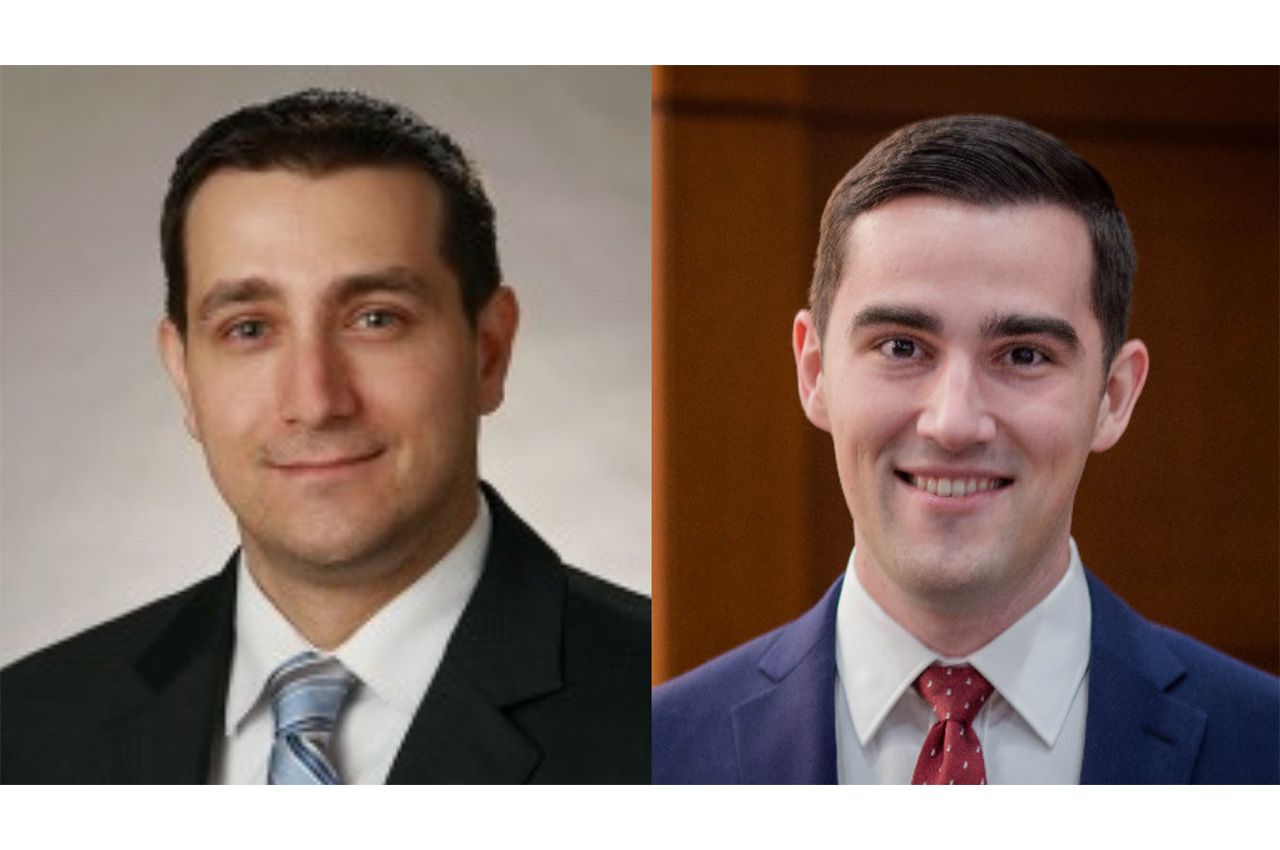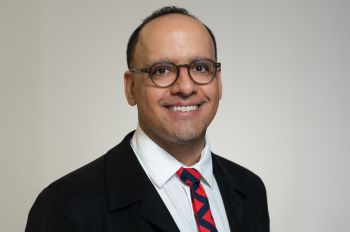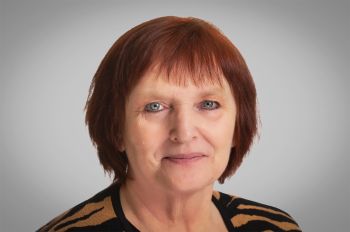Chicago-Kent Team Wins Regionals in Patent Moot Court Competition

A Chicago-Kent College of Law team pulled off an undefeated streak in the Giles Sutherland Rich Memorial Moot Court Competition’s regional bouts this year, and will advance to nationals in April.
Third-year student Alex Mathews and fourth-year evening student Ion Moraru, who practiced moot court on top of his full-time job and course load, went 3–0 over the March 19–21 weekend.
They will compete in nationals starting on April 14.
The complex fictional case involved a patent infringement claim made by a hand sanitizer manufacturer against a competitor. It was an appeal against a prior district court ruling, on two issues.
The first issue related to the construction of the patent's claim language and whether the district court judge had been correct in letting a jury decide the issue.
A pair of opposing experts had testified over the language in the patent. The issue was whether the disagreement was about the meaning or the scope of the claim language. If the experts disagreed about the meaning as a factual matter, then it could have been appropriate for the judge to allow the jury to decide which expert was right. If the dispute was about scope, that was an appropriate question for the judge to rule on, not the jury.
Thus, the teams argued over whether the language in question covered scope or meaning.
The second issue involved the fact that the hand sanitize wasn’t “marked” with its patent; nowhere in its packaging or marketing was there a statement saying the product had a patent, even a pending one. And the governing statute states you can only get damages for patent infringement prior to a lawsuit if a product is “marked.”
However, when representing the manufacturer, the team argued that you didn’t need a patent mark for certain types of claims.
Claims covering “methods,” such as how the product was manufactured, rather than “apparatus” claims, covering physical products, could potentially be recovered without a marked patent under existing case law.
But there was case law against such a position as well. Thus, the teams had to argue which case law was best.
“It’s a narrow exception and only applies when you assert only method claims,” Matthews says.
When arguing for the manufacturer, which the team did two of out three times, they claimed their case law was firmly established, going back 90 years.
When arguing on the opposite side, they said it was “a stupid exception because it invites gamesmanship, allows attorneys to play games with their pleadings,” Matthews says.
Adds Moraru, “You have to be clever in how you apply the case law. You have to convince them your case law is the right one.”
In the end, the competition’s judges noted that the team knew and argued its case law well.
The team advanced against Indiana University’s Maurer School of Law on March 19, followed by a win the following day against the UIC John Marshall Law School. It wrapped up the competition on March 21 with a win against the St. Thomas University School of Law.
Moraru says he considers himself lucky to have had the chance to compete at this level, given his time constraints.
“I don’t think evening students do moot court very often. Also, just knowing where I started, it’s really a testament to [Chicago-Kent professors, coaches, and volunteer practice judges] that we went this far,” Moraru says.
Moraru received his bachelor’s degree in physics and math from Monmouth College, and his Ph.D. in condensed matter physics from Michigan State University. He now works in the legal department of a large mapping and location company.
Matthews received his mechanical engineering degree from Purdue University in 2017. He wants to practice patent litigation upon graduation.



